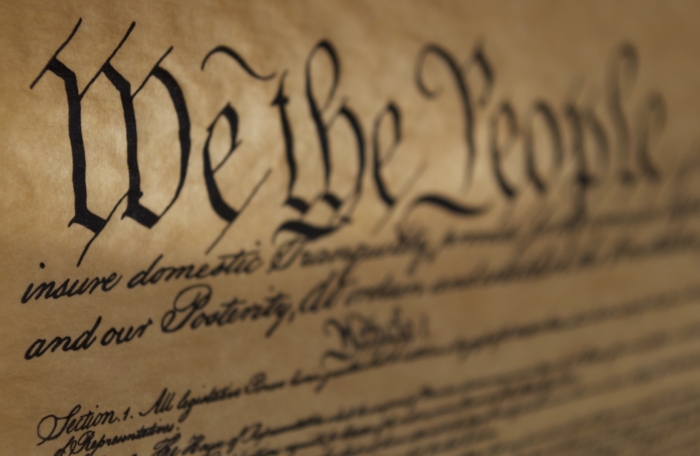How a bipartisan bill would fix New Hampshire’s qualified immunity problem
A bill to be considered by the House of Representatives this week would end the legal doctrine of qualified immunity in New Hampshire. This policy brief offers a quick explainer of the bill and the broader issue of qualified immunity it addresses.
What is qualified immunity?
Qualified immunity is a legal doctrine created by the U.S. Supreme Court in interpreting a federal statute, 42 U.S.C. § 1983 (“Section 1983”). Congress originally enacted Section 1983 in 1871 as the Ku Klux Klan Act, and it was designed to provide citizens a remedy in federal court when state officials violated their constitutional rights. But qualified immunity, which appears nowhere in the text of Section 1983, frustrates that purpose.
In simple terms, it holds that all government employees are presumed to be immune from civil prosecution for violating a citizen’s civil rights unless those rights have previously been “clearly established.” Courts have taken that to mean that a government employee is immune unless a previous U.S. Supreme Court case, or a federal circuit court in the same jurisdiction, showed that precisely the same behavior in the same circumstances was found to have been a civil rights violation.
Importantly, government employees are presumed to be immune from prosecution for civil rights violations regardless of whether their behavior was reckless. Courts have held that even if a police officer acted recklessly, the officer is protected under the qualified immunity doctrine because there was no previous case establishing that the specific behavior was a civil rights violation.
The absurdity of this doctrine is self-evident, as numerous court cases have shown. For example, a U.S. District Court in Texas ruled last year that a prison guard violated an inmate’s constitutional rights by pepper spraying him in the face for no reason. Yet the court held that the guard was protected by qualified immunity because no previous case had established that assaulting a prisoner with pepper spray, as opposed to a baton or Taser, was unconstitutional.
“Despite recognizing that an unprovoked assault violates the Constitution, the majority grants the guard immunity because we have not decided a similar case involving pepper spray,” the dissenting judge lamented.
What does House Bill 111 do?
HB 111, introduced by Democrat Paul Berch and Republican Tony Lekas, does two things.
- It establishes a cause of action in state court to sue the state, and its political subdivisions, for a violation of rights. (Note: suits are to be against the government, not the individual employee.) It makes clear that the state or political subdivision cannot claim immunity by asserting that the rights violated by the state agent were “not clearly established.” That language ends qualified immunity for government employees.
- It holds government employees named in such civil lawsuits shall not be held financially liable. This ensures that employers, not government employees, bear the financial burden of paying damages to citizens whose rights were violated.
How would this make government in New Hampshire more accountable?
The broad and unjustified protections offered by the qualified immunity doctrine reduce the incentive for government to offer adequate employee training. If employees are largely protected from civil lawsuits, then why bother training them on issues related to citizens’ rights?
If HB 111 becomes law, citizens would still have the burden of proving that their rights were violated. But government employees would no longer enjoy default protection by claiming that, without a previous court case involving virtually identical behavior and circumstances, they couldn’t possibly have known it was illegal to violate a citizen’s rights.
Ending qualified immunity protections would therefore create a strong incentive for government to better train employees on constitutional rights, while also giving citizens a way to hold government accountable in state courts when such violations occur.
Right now, even though the New Hampshire Constitution contains a lengthy Bill of Rights intended to protect citizens against specific government actions, state law provides no cause of action when those protections have been violated. HB 111 would make it easier for citizens to hold government accountable when it violates rights guaranteed by the state constitution.
The ‘flood of lawsuits’ prediction
Defenders of qualified immunity claim that ending it would result in a flood of frivolous lawsuits. The New Hampshire Police Association and the New Hampshire Municipal Association suggested in testimony before the House Judiciary Committee in February that without qualified immunity, any government employee could be sued for anything. As examples, they cited “anybody fixing a road,” or building inspectors issuing an occupancy permit.
But the bill does not create a cause of action for bad workmanship or general poor performance. It creates a cause of action only for a violation of constitutional rights. There is no constitutional right to a properly filled pothole.
There is strong evidence, however, government employees in New Hampshire regularly violate citizens’ rights. New Hampshire Public Radio reported last year that state and local police agencies settled 87 civil rights claims totaling $4.3 million from 2010-2020.
Even in New Hampshire, government does violate people’s civil rights, on a distressingly regular basis. House Bill 111 would provide a way for citizens to hold government accountable in state courts when this happens.



